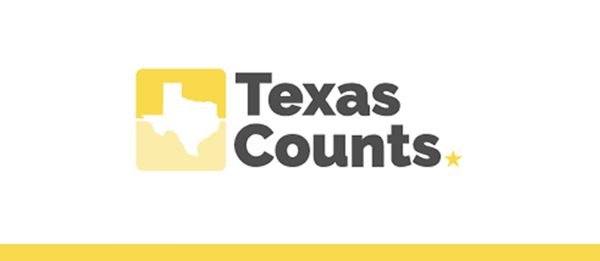| We've got the scoop! | | | | |  | Point of Order - December 2019 | | But what really happens during the interim? | | People ask lawmakers, their staff, and policy advocates all the time, “what happens during the interim period between legislative sessions?” Contrary to popular belief, it’s not all short days and long lunches. Here at CPPP, we’ve been extremely busy promoting an accurate 2020 Census count, opposing bad federal policies like the anti-immigrant “public charge rule,” fighting attacks on food assistance, and protecting the Affordable Care Act. Now the Texas Senate and House have released their interim charges, which are areas of study for legislative committees before the start of the next legislative session. With those charges, our attention soon focuses back on the Legislature. Here are a few thoughts on the Senate and House interim charges: | | | | 1. House Interim Charges have finally been released! The Texas Senate released interim charges on October 30, and the House finally announced its charges on November 25. The late announcement from the House may be related to Speaker Bonnen’s decision not to seek re-election. Since House leadership is in question now, it’s not clear how much these charges will reflect the will of the House and the leadership in the next session. That won’t be determined until the November 2020 elections. In the meantime, CPPP advocates and experts will be working hard on the charges presented. 2. The uninsured rate in Texas is getting worse, and it must be a priority next session. All kids should be able to go to the doctor when they’re sick, but Texas leaders have not prioritized health care access. The Senate has wisely released an interim charge to study and report on ways to decrease the uninsured rate in Texas, including studying two important waivers that could provide funding and cover the uninsured in Texas. The House has a multi-committee charge that looks at the budgetary changes that impact the state’s health programs. Notably, the Senate did not take any action to reduce the uninsured rate last session, even allowing common sense bills to die last session. Will this be the session that the Legislature finally tackles the uninsured rate? Lives are at stake, and we cannot spend another session ducking the damage our worst-in-nation uninsured problem does to our individual and shared prosperity. It affects every region of Texas, and Texans want action. In this vein, CPPP has launched the #SickOfItTX campaign with our partners to make sure every elected official and candidate for office recognizes the importance of expanded health care coverage. Please join us in this effort by signing up here. 3. Devastating student loan debt did not make the cut in either chamber. Neither the Senate nor the House included an interim charge to study the rising costs of tuition and the student loan debt crisis. Students of color and low-income students continue to be hampered with punishing debt that prevents home ownership, retirement savings, and family support. CPPP hopes new leadership in the House will address this critical issue next session. 4. State interference in local community priorities continues. It’s time to end the assault on local communities and allow for local innovation. One unfortunate revelation of the Speaker’s infamous tape with Empower Texans leader Michael Quinn Sullivan was a disclosure from the Speaker stating, “...my goal is for this to be the worst session in the history of the legislature for cities and counties.” Unfortunately, the House included multiple interim charges that threaten the ability of local communities to pass policies that reflect their needs and values. These include asking House Committee members for recommendations on policies local elected officials have made on local policy decisions including short-term rental regulations, paid sick policies, and homelessness; three charges in the House Ways & Means Committee that look at local tax policies, and a State Affairs Committee interim charge that examines governmental entity use of public funds for lobbying. CPPP hopes lawmakers will use the opportunity to discuss these policy areas during the interim with a lens of what is best for working families and promoting thriving communities in Texas. State leaders should use the interim to begin the process of healing from the hateful rhetoric that has tried to divide and distract from the ultimate goal of a Texas where every Texan can thrive. 5. School finance reform is never done. It’s clear that lawmakers will need to make some fixes to House Bill 3, the new school finance law. This was expected. Under the watchful eye of our own Chandra Villanueva, CPPP will continue to push for needed school finance reforms, including funding full-day pre-K, fighting for more equitable local tax rates, and addressing the funding gaps for English Language Learners that remain in House Bill 3. HB 3 was a tremendous victory for increasing the state share of funding, but it should be the first step, not the last. | | | | | |  | It's Time for a Real Revenue Discussion | | Proposition 4, which passed on the November ballot, was an unnecessary and short-sighted proposal that will make it even harder for Texas to ever have a state income tax. The truth is that Texas did not have an income tax before Proposition 4 and will not have one after Proposition 4. State leaders used the fear of an income tax to scare their base, instead of having a grown-up conversation about revenue options. This is why nearly every editorial board in Texas opposed Proposition 4 as unnecessary, rigging the rules and tying the hands of future lawmakers. We expected Proposition 4 to pass, but we were also glad to see it pass by smaller margins than expected. This was especially true in the places where CPPP invested the resources needed to educate voters. However, the real question remains: how will the Legislature fulfill the promise of new school finance reforms (HB 3) without further harming low-income and middle-income Texans? CPPP will continue our work to educate voters, candidates, and elected officials on the need for revenue reforms that end corporate tax loopholes, update the tax code, and ensure everybody pays their fair share. | | | | | |  | Protect the Legislative Budget Board | | The Legislative Budget Board (LBB) is a relatively unknown state agency outside the Capitol, but the work of the LBB ensures that lawmakers use accurate budgeting to pay for education, health care and anything else that costs money. The agency is under attack, however, and we must defend its integrity. We can all agree on the need for transparency and accuracy in the budgeting process, something that the LBB guarantees. If the LBB fades away or becomes a political instrument of one person, it will lose its credibility and completely undermine the legislative process. We could see proposed legislation from one chamber or members of a particular political party get stuck with an unrealistically high cost estimate (“fiscal note”) just to kill the proposed policy. All legislators, regardless of their political affiliations, rely on the accurate analysis of cost from the LBB to assess the merits of legislation and its impacts on the state budget. We need all the elected state leaders who sit on the board of the LBB to commit to fully staffing the agency and allow it to serve as a vital, unbiased, and credible source of information aiding the legislative process. | | | | | | | | Hidden Gems in the 2020-2021 Texas Budget | | The state budget tells us what our leaders have decided are the priorities for Texas. Want to know what’s really changing for better or worse in the 2020-2021 Texas state budget? The approved budget is not as big as originally reported. When the 86th Legislature wrapped up this past May, legislative reports said that the final 2020-2021 budget — House Bill 1 — authorized almost $251 billion in support for state services. But with all spending legislation tallied, the 2020-2021 total drops to $248 billion: $162 billion in state revenue, and $86 billion in federal grants. The state budget gives schools a funding boost, but there is no direct funding for full-day pre-K. CPPP applauded the fact that public schools got almost $9 billion more in state aid in 2020-2021, compared to 2018-2019. Despite what you may hear, however, HB 3 did not create direct funding for full-day pre-K, meaning pre-K enrollment will continue to count as half a student for funding purposes. Read more... | | | |  | Let's Make Sure Texas Counts in the 2020 Census | | Fundamental to the work of the 2021 Legislative Session will be the 2020 Census. The 2020 Census will determine the amount of federal funding Texas communities receive, the number of constituents in every political district from school board to Congress, and whether or not businesses invest in Texas. In November, CPPP helped announce the launch of Texas Counts, a statewide collaborative effort working to leverage, amplify and share resources across communities and sectors to ensure that every Texan is counted in the 2020 Census. Texas Counts includes the online connector hub TexasCounts.org and the statewide Texas Counts Pooled Fund, which provides funds to enable local communities to target outreach efforts and implement best practices. | | | | | | Center for Public Policy Priorities
7020 Easy Wind Drive, Suite 200 | Austin, Texas 78752
512-823-2875 | updates@cppp.org | | | | | | | | | | | |